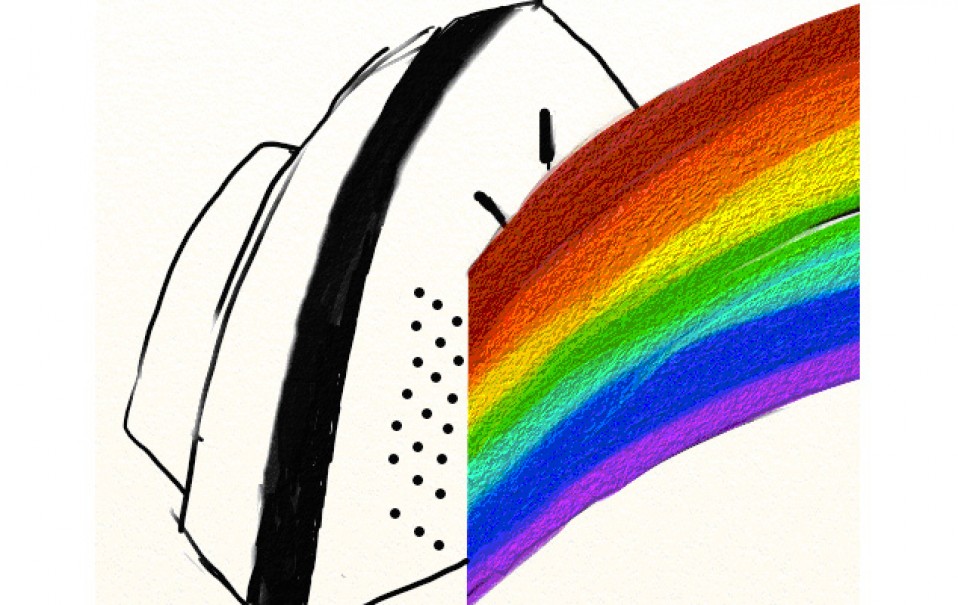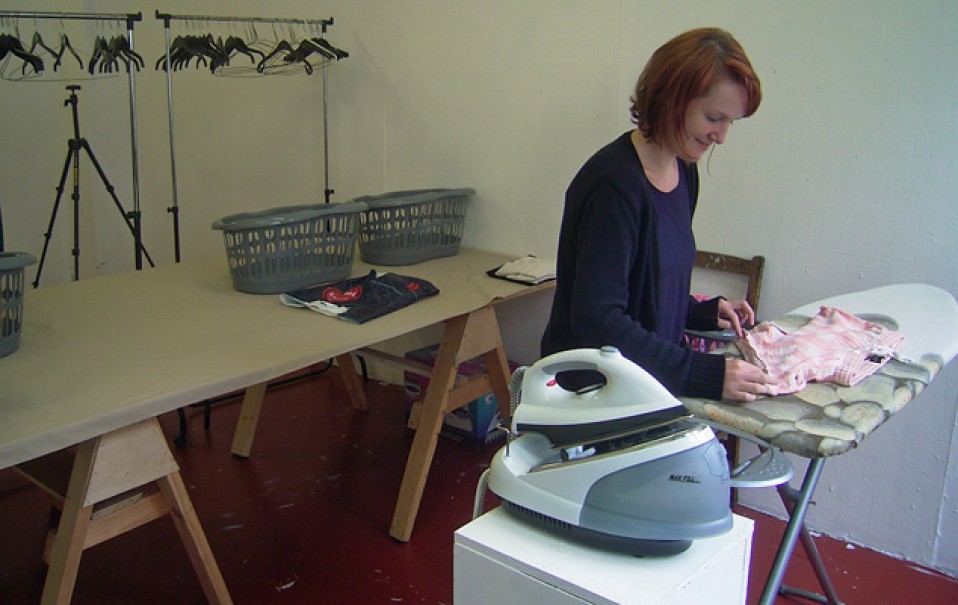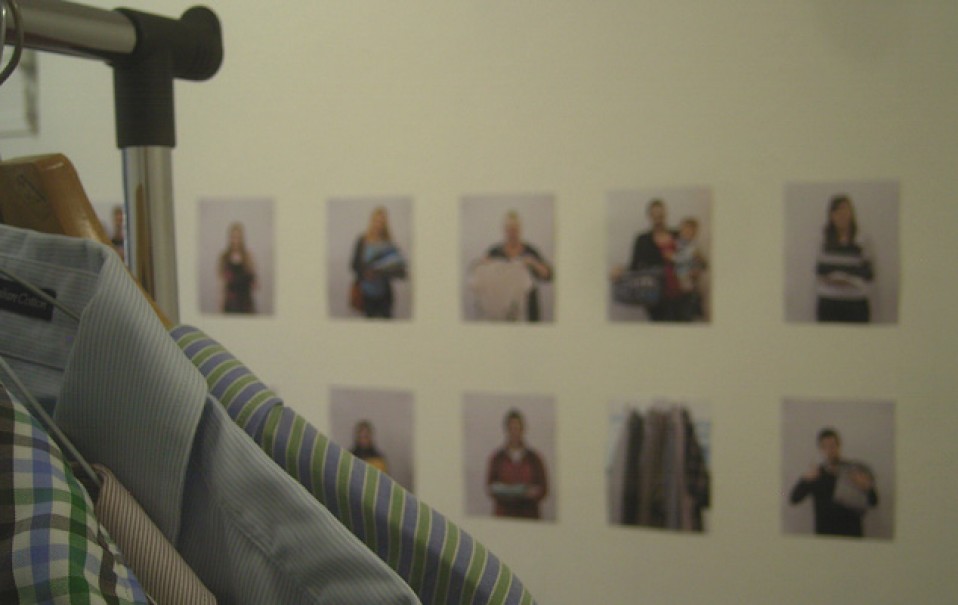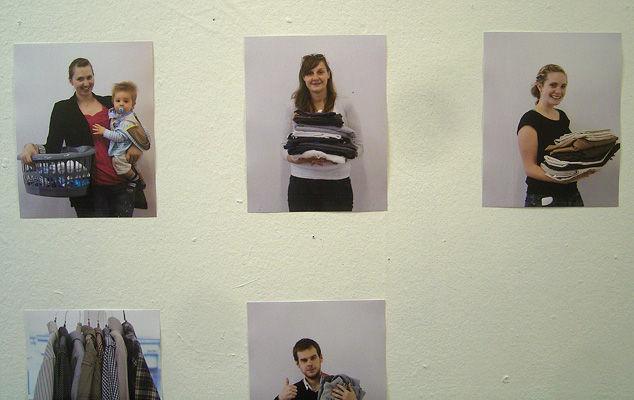
'. . . come let me lighten your (ironing) load'
Julie Miller
Ends 06 August 2011
Hate Ironing?
For one week only-
Get it done for free!!!
Drop your load at PS²
This work is the second in the ‘And let us not be weary’ series, a series of actions intended to explore the idea of the free gift. This action investigates the possibility of a temporary free gift through ironing. This domestic chore is traditionally seen as woman's work, thankless and boring. Julie Miller will explore the obligation that is created when performing this task for others. The fact that ironing is temporary and must be repeated after every washing load is something that makes it seemingly pointless.

Installation view

Installation view
Julie Miller quotes in the title of the project '. . . come let me lighten your (ironing) load' the Bible. It is from Galations 6:9 and the full verse is: 'And let us not be weary in well doing: for in due season we shall reap, if we faint not.'
It echoes the idea that a gift is not free if it is given in the hope the giver will benefit.
'The action of ironing for others constitutes a gift in two ways. Firstly it is a gift of my time dedicated to the participant and secondly it is a gift of time to them leaving them free to utilize their usual ironing time doing something else.
The act of ironing for someone else is a strange act, as ironing is by its nature a temporary solution to problem of creases. By carrying out this action I am asking others to relinquish this task and any associations it has for them to me.
The work is an open-ended exploration, what happens if the quantity of ironing exceeds my ability? Will I impose this task on someone else?
In return for carrying out this action, I will ask each person to be photographed holding the finished ironing that they brought. Does this constitute an obligation to reciprocate? What at first seems to be a gift of my time and labour, in producing work for an exhibition may in fact be the participants’ gift to me.
Ko Maru kai atu
Ko maru kai mai
Ka ngohe ngohe.
‘Give as much as you take, all shall be very well’
Maori proverb (Mauss 1954:91)
Mauss describes gifting as the economy before money. He talks of the shame of being ‘the last recipient’ (1954:5).'

Picking up ironed clothes, photographs

